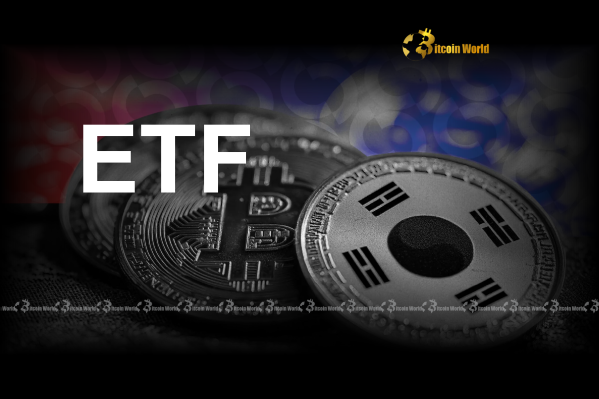
In a significant development for the burgeoning world of digital identity and cryptocurrency, Worldcoin, the ambitious project co-founded by OpenAI’s Sam Altman, has recently put a temporary halt to its controversial iris scans service in Germany. This pause, reported by DL News, comes at a pivotal moment, as the company cites station upgrades while simultaneously navigating intense legal challenges centered around data privacy. For anyone tracking the intersection of technology, finance, and personal liberty, this situation presents a compelling case study on the complex realities of building a global digital identity network.
What Exactly Happened with Worldcoin’s Iris Scans in Germany?
The news broke that Worldcoin, known for its distinctive ‘Orbs’ that scan human irises to create unique digital IDs, ceased its operations in Germany. While the official reason provided by the company was for ‘station upgrades,’ the timing is notable. Worldcoin has been under increasing scrutiny from various regulatory bodies across the globe, particularly concerning its methods of collecting sensitive biometric data.
This isn’t just a simple technical upgrade; it’s a pause steeped in the ongoing dialogue about how personal information, especially highly sensitive biometric identifiers, is collected, stored, and utilized in the digital age. The company has not yet provided a definitive timeline for when these services will resume in Germany, leaving many questions unanswered about its operational future in a country known for its stringent privacy regulations.
Why is Data Privacy a Central Concern for Worldcoin?
At its core, Worldcoin’s mission is to create a global identity and financial network, aiming to verify ‘personhood’ in an increasingly AI-dominated world and potentially pave the way for universal basic income (UBI). To achieve this, individuals must undergo an iris scan via the Orb, which generates a unique ‘World ID.’ This process, while innovative, immediately raises red flags for data privacy advocates and regulators.
Here’s why the privacy concerns are so profound:
- Sensitive Biometric Data: Iris patterns are unique to an individual and cannot be changed if compromised. Unlike a password, you can’t reset your iris. The collection of such immutable data carries inherent risks if not handled with the utmost security and transparency.
- Centralization of Data: While Worldcoin claims to process data on-device and only store a numerical hash, the very act of collecting millions of iris scans globally creates a centralized honeypot of highly sensitive information, even if anonymized. The potential for misuse or breaches, however remote, is a significant worry.
- Regulatory Scrutiny: Countries like Germany, with the European Union’s General Data Protection Regulation (GDPR) as its backbone, have some of the strictest privacy laws globally. GDPR mandates explicit consent, data minimization, and robust security measures. Worldcoin’s model has been challenged on whether it fully adheres to these principles, particularly regarding informed consent and the necessity of collecting such extensive biometric data for its stated goals.
- Transparency and Trust: A new global identity system requires immense trust. Critics argue that Worldcoin’s communication around data handling and its long-term vision could be clearer, fostering a climate of skepticism rather than confidence.
The legal challenges Worldcoin faces in Germany are not isolated incidents. Similar investigations and concerns have emerged in other jurisdictions, underscoring a global apprehension about the collection of biometric data by private entities, especially when linked to financial incentives like free cryptocurrency tokens.
Understanding the Broader Implications of Biometric Data Collection
The case of Worldcoin and its iris scans in Germany extends beyond a single company; it highlights a burgeoning global debate about the role of biometric data in our future. Biometrics, which include fingerprints, facial recognition, voice prints, and iris patterns, offer unparalleled convenience and security in many applications, from unlocking smartphones to border control. However, their unique and immutable nature also presents significant risks.
Consider the dual nature of biometric technology:
| Potential Benefits of Biometric Data | Potential Risks of Biometric Data |
|---|---|
| Enhanced security and authentication (e.g., preventing fraud). | Irreversible compromise if data is breached. |
| Seamless user experience (e.g., quick access, no forgotten passwords). | Potential for mass surveillance and tracking. |
| Unique and reliable identification (e.g., ‘proof of personhood’). | Bias and discrimination if algorithms are flawed or data sets are unrepresentative. |
| Facilitating access for unbanked populations. | Erosion of individual privacy and autonomy. |
The controversy surrounding Worldcoin serves as a crucial reminder that while technological innovation can offer groundbreaking solutions, it must always be balanced against fundamental rights and ethical considerations. The conversation around data privacy is no longer theoretical; it’s a practical, urgent matter shaping policy and public perception worldwide.
The Road Ahead: What’s Next for Worldcoin in Germany and Beyond?
The pause in Germany is a significant hurdle for Worldcoin, but it’s unlikely to be the end of its journey. The company has demonstrated resilience and a clear vision for its future, albeit one that is continuously challenged by regulatory frameworks and public skepticism.
What might the path forward look like?
- Regulatory Engagement: Worldcoin will likely need to intensify its engagement with German and EU regulators. This could involve modifying its data collection practices, enhancing transparency, or offering more robust opt-out mechanisms. Compliance with GDPR is paramount for any tech company operating within the EU.
- Technological Adaptation: The company might explore alternative methods for ‘proof of personhood’ that are less reliant on highly sensitive iris scans or implement advanced privacy-preserving technologies like Zero-Knowledge Proofs (ZKPs) more extensively to demonstrate that user data remains truly private and untraceable.
- Public Education and Trust Building: A significant challenge for Worldcoin is overcoming the trust deficit. Clear, concise, and proactive communication about their data handling, security protocols, and the long-term benefits of their project will be crucial.
- Global Strategy Reassessment: The issues faced in Germany are indicative of broader global concerns. Worldcoin may need to tailor its rollout strategy to accommodate diverse regulatory environments and cultural sensitivities regarding biometric data.
The outcome in Germany could set a precedent for Worldcoin’s operations in other privacy-conscious nations. It forces the project to confront the fundamental tension between its expansive vision of a global identity network and the individual’s right to privacy and control over their own data. The ongoing dialogue will shape not only Worldcoin’s future but also the broader landscape of digital identity, cryptocurrency, and the responsible use of cutting-edge technology.
A Compelling Future for Digital Identity or a Privacy Peril?
The temporary cessation of Worldcoin’s iris scans in Germany is more than just a logistical hiccup; it’s a critical moment in the ongoing global conversation about data privacy and the ethical deployment of biometric data. While Worldcoin’s ambition to create a universal digital identity and potentially a pathway to UBI is undeniably grand, the methods employed raise legitimate and urgent concerns that cannot be ignored.
The future of digital identity will hinge on finding a delicate balance between innovation, accessibility, and the fundamental right to privacy. As we move further into an interconnected world, the lessons learned from Worldcoin’s challenges in Germany will undoubtedly inform how societies, regulators, and technologists approach the creation of secure, equitable, and privacy-preserving digital identities for all.
To learn more about the latest crypto market trends, explore our article on key developments shaping the future of digital identity and cryptocurrency regulation.





